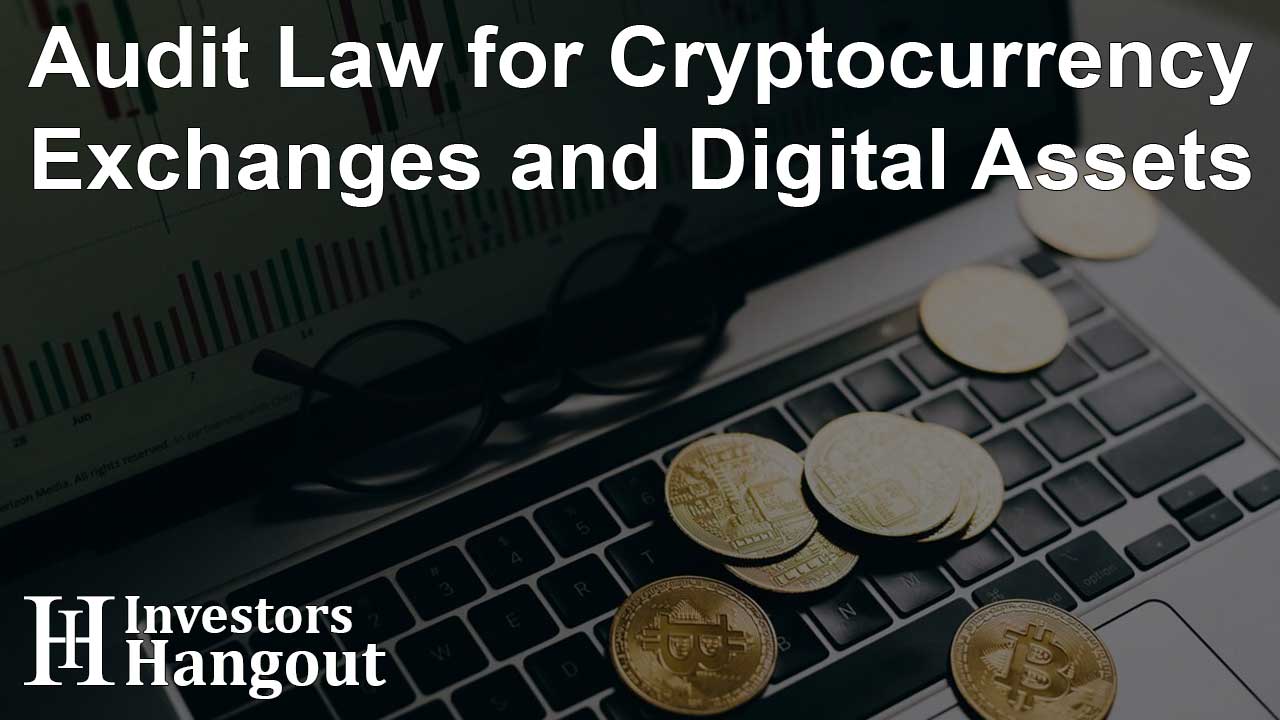Audit Law for Cryptocurrency Exchanges and Digital Assets

Ensuring Compliance and Security: The Importance of Crypto Exchange Audits
The crypto field keeps evolving year by year, with new exchange platforms kicking in every now and then, not to mention the existing ones adapting to all sorts of different concepts and technologies.
As the industry is easier to regulate, it makes perfect sense to pay special attention to audits as well, only to ensure such exchange platforms comply with the law and offer a safe and secure experience.
These being said, let’s go through some of the main practices required to ensure a good audit, as well as the main considerations from a legal point of view.
The Necessity of Crypto Exchange Audits
Trust and security are some of the main factors determining the reliability of an exchange. From this point of view, a blockchain audit plays a critical role in making sure the exchange operates by the book.
Since exchanges deal with heavy amounts of digital assets, they’re extremely attractive for scammers and cyber criminals, hence the necessity of security.
An audit can also identify potential flaws, weaknesses or vulnerabilities, meaning exchanges can take steps to fix such issues.
Then, it’s worth considering compliance with laws and regulations too, such as AML or KYC laws. An audit ensures laws are respected in the smallest details.
On top of all these, a successful audit adds to the credibility of an exchange.
Prior to the Audit
Good planning is essential for effective audits. Exchange operators must identify the purpose of the audit, gather all the legal documents and if they’re big, get together a team to deal with the audit.
Using advanced tools can make things easier by organizing the data and handling repetitive tasks so your team can focus on what’s really important.
Risk assessment is also important because it can underline potential flaws that could trigger the audit later.
Legal Security Aspects
The security audit is one of the most important parts of the process. With so many sophisticated threats in the cyber industry, an exchange must follow very strict rules in terms of safety and security. There are a few general things to focus on here:
· Infrastructure safety, which covers the network and server.
· App security, which covers the code, scripting, overflows, authentication and penetration testing.
· Wallet security, which relates to both hot and cold wallets, as well as key management.
Compliance Audit Elements
This part of the audit covers the legal profile of the exchange and will go into very small details. Regulations for crypto exchanges have never been more diversified, so exchanges must evolve along with these laws.
There are both local and international laws and they’re very complex, hence the necessity to have a team for the audit. Some of the key considerations include:
· AML laws, which stand for Anti-Money Laundering. AML policies are usually reviewed yearly.
· KYC laws, standing for Know Your Customer, which relate to verifying identities and monitoring activities.
· Data protection laws are very strict too, especially within the EU. The GDPR goes into very small details in terms of data protection, but the CCPA is not to be overlooked either.
· Data handling is just as important because it implies encrypting data and storing it securely.
It’s worth noting the laws on financial reporting too, not to mention transparency and even user fund segregation. Using technology can make these processes much easier and more efficient.
It’s important to train your team regularly on compliance topics so they stay informed and can handle changes in regulations. If your exchange isn’t compliant, it can really hurt its reputation and how it operates.
Operational Audit Factors
In terms of operations, exchanges have just as many rules and laws to follow.
For instance, order matching is very important, but there are laws regarding the execution too. Then, scalability is important, as well as the transaction speed.
On top of all these, customer service may look like something that offers reliability and convenience to customers, but it’s well regulated as well. Support channels are reviewed, as well as policies in place to dispute resolutions.
Throw in the business continuity plan and the disaster recovery plan and an audit becomes one of the most challenging legal things an exchange will have to go through. Given the wide variety of requirements and small bits to pay attention to, it’s no surprise that many exchanges assess an entire audit team. This will ensure that all aspects are covered thoroughly and effectively.
Bottom line, it's clear that audits are crucial for cryptocurrency exchanges and digital assets to maintain compliance, security, and operational efficiency. These audits not only ensure exchanges follow the law but also play a key role in building trust and credibility among users.
About The Author
Contact Evelyn Baker privately here. Or send an email with ATTN: Evelyn Baker as the subject to contact@investorshangout.com.
About Investors Hangout
Investors Hangout is a leading online stock forum for financial discussion and learning, offering a wide range of free tools and resources. It draws in traders of all levels, who exchange market knowledge, investigate trading tactics, and keep an eye on industry developments in real time. Featuring financial articles, stock message boards, quotes, charts, company profiles, and live news updates. Through cooperative learning and a wealth of informational resources, it helps users from novices creating their first portfolios to experts honing their techniques. Join Investors Hangout today: https://investorshangout.com/
